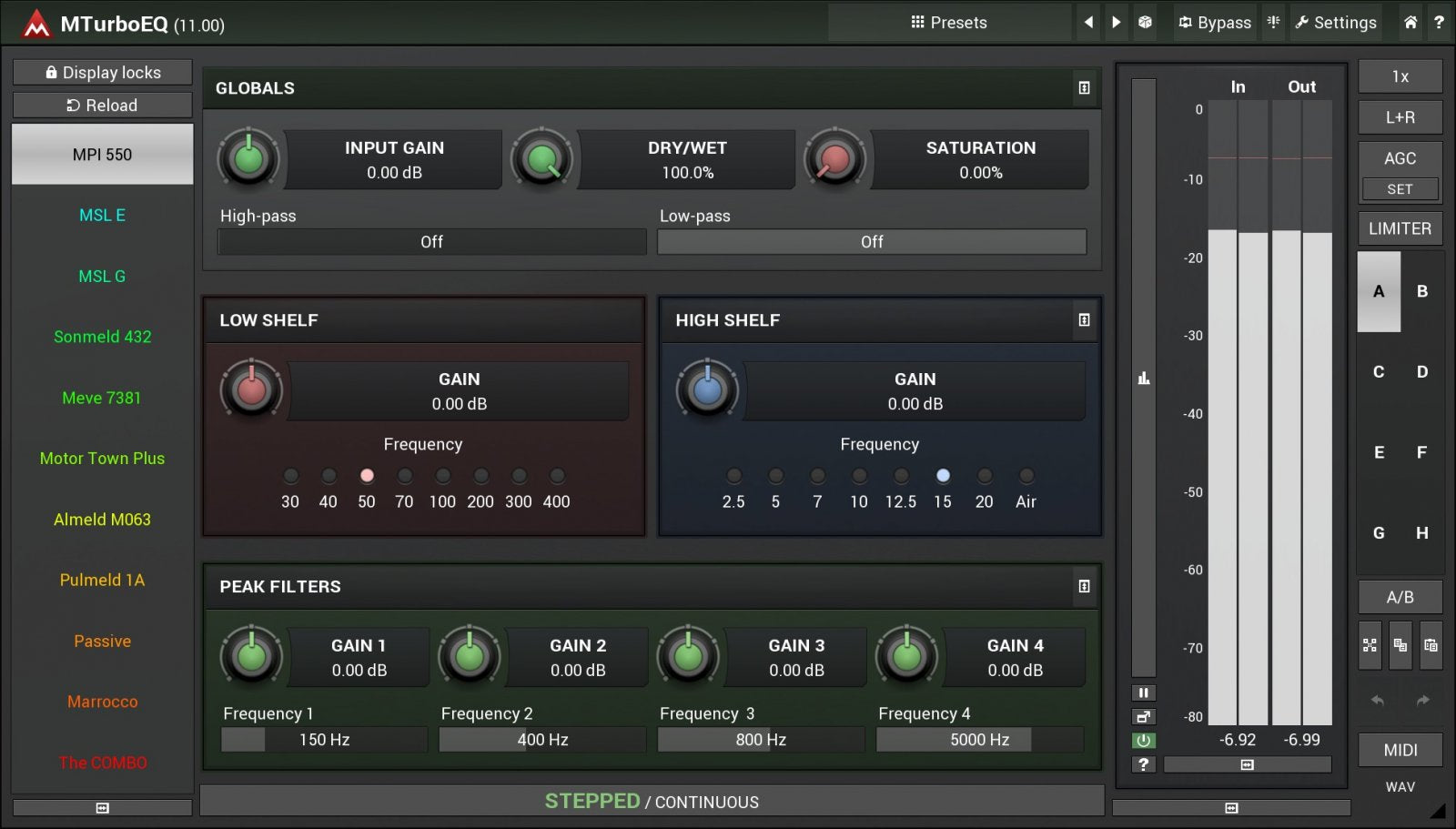Description
MTurboEQ is a unique vintage-style equalizer inspired by most of the well-known classic hardware. It's not one of them, it's all of them! For quick and easy equalization with pristine results.
Equalization reinvented for easier and faster workflow
MTurboEQ speeds up the workflow tremendously by providing access to so many classic equalizers in a single click. But it doesn't stop there. The controls in each hardware were very different, and very weird in many cases, so one had to take a lot of time learning to work with such a clumsy interface. All models in MTurboEQ have pretty much the same user interface and features.
There is always a low-shelf and a high-shelf, the most essential filters. Then there are usually 4 peak filters, even if the original had just one, and they always work the same way. And of course there are the classic goodies such as high-pass and low-pass filters (which are used on pretty much all tracks these days, but not many vintage equalizers actually had them), saturation to get some of the analogue feel, dry/wet for easy control of the amount of equalization, automatic gain compensation to avoid loudness trickery, mid/side/surround and more...
Stepped vs. Continous
Some people just like lots of versatility, others prefer having limited options. MTurboEQ provides both options. In Stepped mode almost everything has limited values - predefined frequencies for each filter, gain increasing by single decibels etc. It is much faster to make a decision this way, especially since bigger differences are easier to compare by ear. And when (if) you are ready, you can just switch to Continous mode for fine-tuning. MTurboEQ then lets you access all of the frequencies etc., even if the original hardware (and all emulations) didn't have that. Courtesy of the digital world.
They did the hard work, you equalize!
There is no doubt, that you could do 99.9999% of the sound of any analog equalizer using a versatile parametric equalizer, such as MAutoDynamicEq. It's just frequencies and curves after all, there's no hidden magic. But the analogue equalizers have one big advantage - the design. They provide access only to what you will likely use, configured in such a way, that it all just sounds good from the beginning. Melda analyzed these designs, copied what they considered useful, trashed the rest (such as noise, hum, pointless overall gain changes...) and now they give you a finished equalizer, which you can just plug in, turn a few knobs and you are done. It's fast and the results are great, that's all, no magic.

